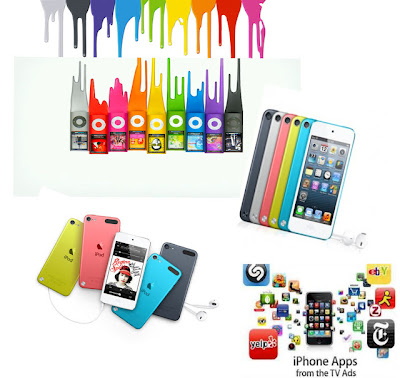As this experiments tests on a human's psychology and how the mind works, it plays a hug impact on the society today. These results clearly show us that something as little and unimportant as colours could change our choices and our behaviour.
Teenage women were the age group and gender tested and this plays a major impact on the society today. Pop culture and advertising lures people in to buy their products with one major way. COLOUR. The results from my experiment will be exactly the same in real life. Colour preferences will influence their choices and many young women are drawn in by the bright colours and their brain overlooks the colour preferences which changes their behaviour and choices from logic to favouritism. Marketing knows that this is one of the best way to interest people that are walking along the city streets.
Preferences Bias Our Choices
Thursday, August 22, 2013
Bibliography
What's independent and dependent variables? 22/8/13, 7:03 pm
http://answers.yahoo.com/question/index?qid=20110522093325AA3DscO
Independent and dependent variable examples, 22/8/13, 7:05 pm
http://examples.yourdictionary.com/examples/independent-and-dependent-variable-examples.html
What is control variable? 22/8/13, 7:36 pm
http://www.businessdictionary.com/definition/control-variable.html
Reliability, 21/8/13, 6:58 pm
http://writing.colostate.edu/guides/page.cfm?pageid=1386
Do preferences bias our choices? 18/8/13, 4:36 pm
http://www.sciencebuddies.org/science-fair-projects/project_ideas/HumBeh_p019.shtml#summary
Passive Voice, 21/8/13, 7:18 pm
http://grammar.about.com/od/pq/g/pasvoiceterm.htm
Science Fair Project Guide 18/8/13, 5:49
http://www.sciencebuddies.org/science-fair-projects/project_guide_index.shtml
http://answers.yahoo.com/question/index?qid=20110522093325AA3DscO
Independent and dependent variable examples, 22/8/13, 7:05 pm
http://examples.yourdictionary.com/examples/independent-and-dependent-variable-examples.html
What is control variable? 22/8/13, 7:36 pm
http://www.businessdictionary.com/definition/control-variable.html
Reliability, 21/8/13, 6:58 pm
http://writing.colostate.edu/guides/page.cfm?pageid=1386
What is the difference between reliability and validity in psychology research? 21/8/13, 7:06 pm
http://au.answers.yahoo.com/question/index?qid=1006032701828Do preferences bias our choices? 18/8/13, 4:36 pm
http://www.sciencebuddies.org/science-fair-projects/project_ideas/HumBeh_p019.shtml#summary
Passive Voice, 21/8/13, 7:18 pm
http://grammar.about.com/od/pq/g/pasvoiceterm.htm
Science Fair Project Guide 18/8/13, 5:49
http://www.sciencebuddies.org/science-fair-projects/project_guide_index.shtml
Reflection
Some difficulties and problems i faced when conducting the experiment was that it very hard to tabulate the results. Normalizing the results I had was difficult as it was hard to convert the data into percentages and it didn't add up. This was overcome by creating a different way of tabulating and graphing the data by using average percentages of the data.
Another difficulty was when conducting the experiment, factors had altered the results which caused some of the results to be inaccurate. "Blue M&Ms are bad for you" made some of the participants not choose blue M&Ms at all and that affected the results. This was overcome by assuming there was no blue for those participants and asking them for a different favourite colour.
Improvements I could have done with this experiment was that I could have used more time to execute this experiment and to test more people to create more reliability. I could have used more accurate data creating a graph with averaged data scores.
Another difficulty was when conducting the experiment, factors had altered the results which caused some of the results to be inaccurate. "Blue M&Ms are bad for you" made some of the participants not choose blue M&Ms at all and that affected the results. This was overcome by assuming there was no blue for those participants and asking them for a different favourite colour.
Improvements I could have done with this experiment was that I could have used more time to execute this experiment and to test more people to create more reliability. I could have used more accurate data creating a graph with averaged data scores.
Conclusion
The M&Ms chosen were higher where the participants chose their favourite colour. The percentage levels were higher on the favourite colour M&Ms and lower on the other colours. The participant's choice of M&Ms were obviously much higher on their favourite colour M&Ms and their bias choices towards their colour preferences has been drawn from the graph. The trend increases where the colours match showing more numbers on favourite colours but decreases when it is not the participant's favoured colour.
The experiment has proven that colour preferences bias people's choices and that it clearly affects the hand-eye coordination which affects our movement and behaviour in everyday life.
The experiment has proven that colour preferences bias people's choices and that it clearly affects the hand-eye coordination which affects our movement and behaviour in everyday life.
Reliability
Reliability is when an experiment is performed and the results are the same/similar on repeated number of tests.
The reliability of this experiment is fairly accurate as majority of people tend to become bias towards their preferenced colours. Therefore, over a number of trials with different participants, even if the experiment was repeated numerous times, the overall results will be very consistent.
Other experiments that may have been performed before have shown similar results. Similar tests such as preferring to different pets by their colours and also assuming the flavours of different coloured foods are very similar tests which explore the human mind and how preferences bias our choices. The results in all of these replicates produced an extremely similar set of data to my experiment.
Subscribe to:
Comments (Atom)










